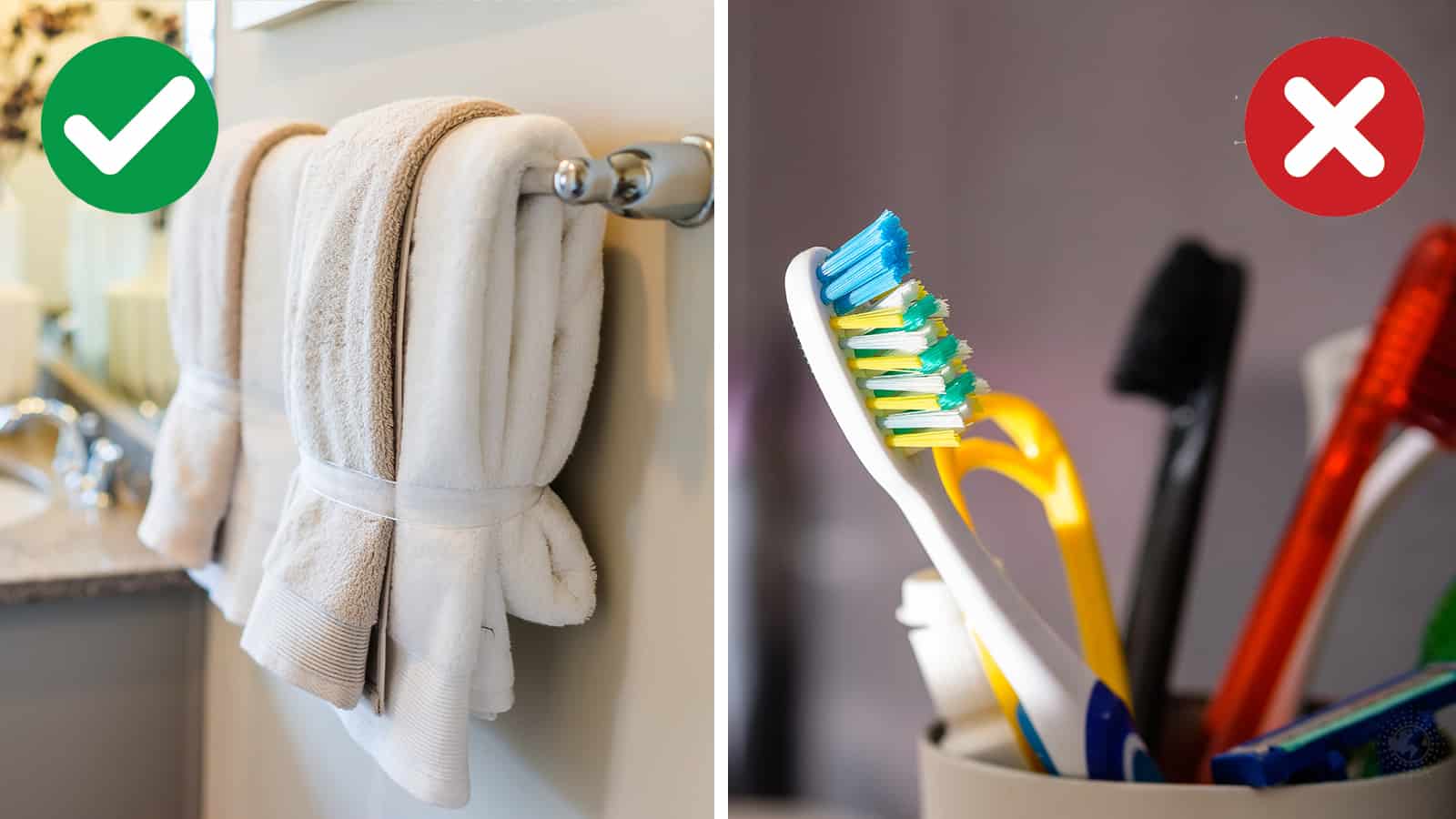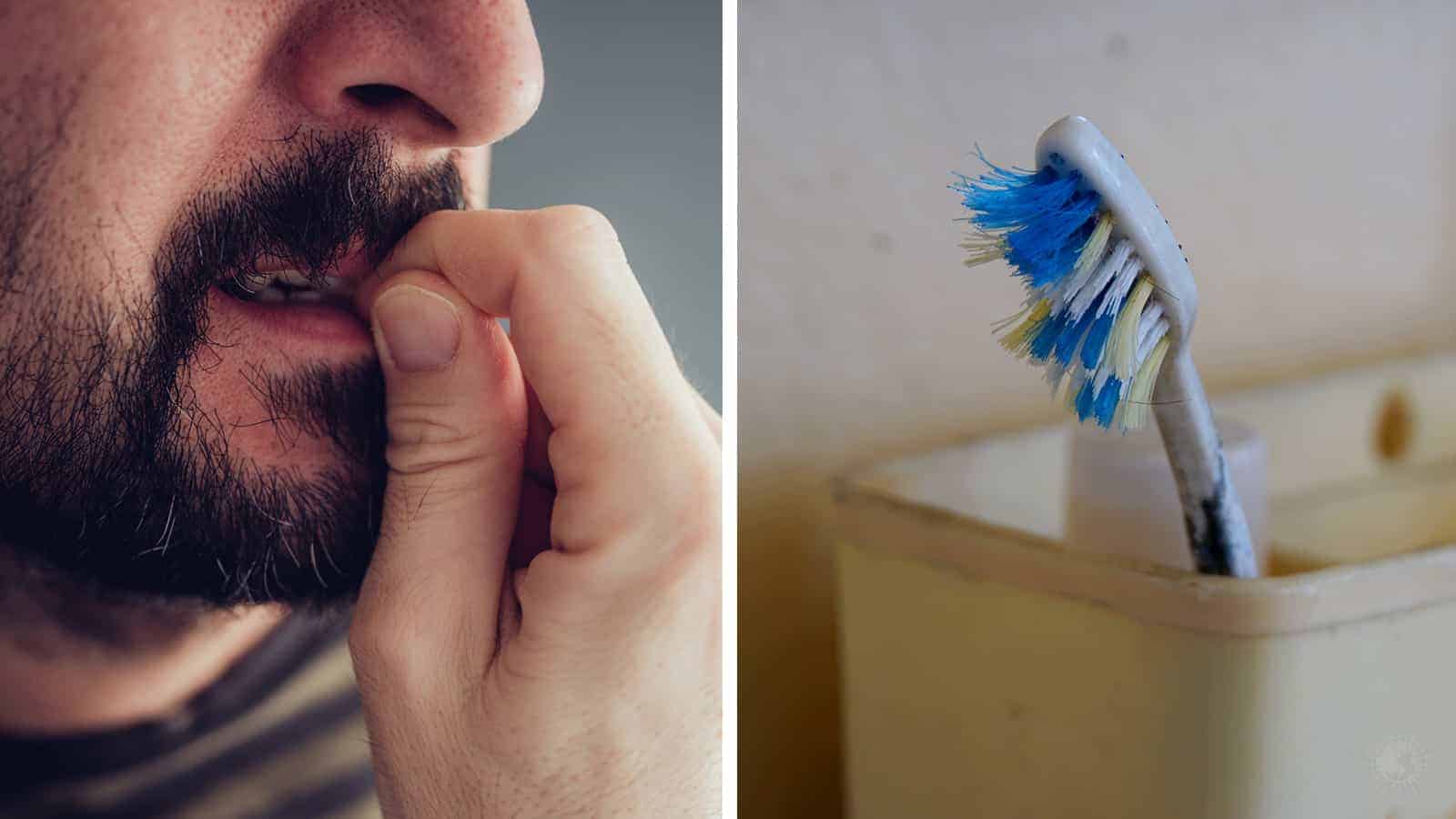Did you know it takes approximately twelve seconds to sit on the toilet and pass the stool from your bowels?
Live Science did a study on toilet habits, and they found that the average person passed about six pounds of stool in a week, which equates to a whopping 320 pounds a year. It’s easy to see that you spend much of your life in the bathroom as it’s part of your bodily processes, but do you really need to spend so much time there?
The American and British folks spend more time than most on the loo. A study from UK Active showed that, on average, these individuals spend about three hours a week in their bathroom. What’s shocking is that the recommended time limit is no more than fifteen minutes daily.
The goal is to get in and out of the bathroom quickly. However, many people have made this an area to meditate, relax, read a book, and play a video game. While these little helpers might work when you toilet-train a child, it can waste time for adults. This is especially true considering all the germs and bacteria lingering in this area.
Toilet Hygiene You Should Know
As a parent, you teach your children to wipe correctly, wash their hands appropriately, and dry them off on a clean towel. However, there are many more things that you should be teaching them. There are some things that you need to know too. Here are some basic hygiene things you should learn for one of the most used rooms in the home.
1. Don’t Take Your Cell Phone in The Restroom
Okay, everybody takes their cell phone in the bathroom to catch up on emails and text friends. You don’t realize how you’re spreading bacteria all over your phone, which you will also put close to your mouth and on the table while you eat.
You talk and text while taking care of business. Then you put the phone down to take care of the paperwork. Before you wash your hands because it’s on the other side of the room, you pick up the phone again.
All the bacteria from your hands and the “paperwork” have now been transferred to your phone. Not only are your hands loaded with germs, but bacteria are on every surface in that room. A study conducted by Med League looked at what kind of germs was on the phones used in the bathroom.
Shockingly, they found MRSA, which can be a deadly staph infection. Just don’t take your phone in the bathroom, whatever you do. It’s just not safe unless you’re going to clean it thoroughly afterward.
2. The Toilet Plume Is Toxic
The chances are that you have never heard the term toilet plume, but you know what this nastiness is all about. When you flush the commode, it sprays a bit due to the water’s force needed to flush the contents. According to Self, when you flush, it sprays the particles into the air roughly six feet from the commode, which means no surfaces are safe.
Have you ever seen people have towel racks above their loo? How clear are those towels they’re drying their faces with every day? Some experts have labeled this occurrence “poop confetti” as your toilet has a little party with each use.
The key is always to put the lid down and ensure you “flush and rush.” Since fecal matter carries some deadly toxins, you don’t want it settling on surfaces and permeating your breathing space any more than it already did.
3. You Should Deep Clean Your Commode Regularly
The Today Show once made a segment on the porcelain throne and health habits. According to experts, your toilet should be cleaned thoroughly at least once weekly. It would help if you got down around the base, under the lid, and in the bowl.
Also, cleaning brushes are a harbor for bacteria and are plain disgusting. The newer clean and toss systems are better as they reduce germs. Pumice stones are the best at removing tough stains, especially if you have hard water that turns your throne orange from iron.
If you don’t clean this frequently used location often, you’re just asking for trouble.
4. Don’t Keep Toothbrushes on the Counter
So many cute toothbrush holders allow you to keep all your brushes right there in sight. However, remember the plume that sprays from your throne? Well, that overspray gets all over your toothbrushes too.
So, each time you brush your teeth, you’re taking a chance of putting harmful bacteria into your mouth. Can you think of anything more disgusting? Keep those toothbrushes in a medicine cabinet or drawer. Oh, and with all the sicknesses going around, make sure you put one of those travel caps on it, too, so it doesn’t mingle saliva with someone else’s in the home.
Plus, it would help if you changed out those toothbrushes periodically. So change them out every three or four months or immediately following a sickness.
5. The Toilet Seat Is A Petri Dish for Infection
You know you should clean your commode once a week, but the seat might need to be cleaned more than once in seven days. The place you sit is bound to have more germs than many other surfaces, as it’s up close and personal to the action. How Stuff Works referenced a study by ABC News.
They found that the average commode seat in America has 50 bacteria per square inch. So, what kind of bacteria is in this tiny space anyway? You may be horrified to find that E. coli, shigella bacteria, streptococcus, staphylococcus, and influenza all live on the seat. Most females won’t sit on a public restroom seat and will meticulously line each inch with paper to keep from touching any surfaces.
However, while the efforts are notable, it does little to protect you. The good news is that the article says it’s nearly impossible to contract a sexually transmitted disease from the seat.
6. Don’t Touch the Knob
Even if it’s the knob on your bathroom door, try to use a towel or the tail of your shirt to open and close it. Remember that only five percent of people wash their hands properly, so chances are a breeding ground for germs. Use an antibacterial wipe to clean it often to get rid of any germs left by others.
7. Some People Pee on The Floor
If you were to take a black light and hold it by your commode, you might be surprised at what you see. Sorry, guys. But it seems that men have more difficulty getting things to the right spot.
If you have teenage boys or young ones potty training, then the amount of dried urine around your porcelain throne may shock you. Make sure you clean this area, too, when you’re scrubbing the loo.
8. You Must Open a Window or Turn on a Fan
Do you have a fan or window in your bathroom? There’s a reason for this ventilation as it’s required by law. Not only will the ventilation help to keep mold at bay from the shower, but it helps to rid toxins in the air from all those half-hour-long trips to the toilet.
9. Washing Your Hands Keeps You Healthy
According to a study done by the Cleveland Clinic, more than 33 percent of the population doesn’t wash their hands when they go to the restroom. The 67 percent that did wash their hands attempted to do things right, but only five percent used enough soap and scrubbed as they should. You must wash your hands each time you use the restroom, no matter if it’s just to urinate.
10. Keep Hand Towels Six Feet From The Throne
That disgusting plume that sprays from the commode can also get on your hand towels if they’re too close. So, you wash your hands and get rid of all the germs; then, you pick up the towel to dry off and pick the germs right back up. Also, consider that a towel that’s been used by someone who didn’t wash their hands properly is already full of bacteria.
Final Thoughts on Utilizing Correct Toilet Hygiene
Wouldn’t it be wonderful if you didn’t need to spend so much time in this room each week, especially if you have a germ phobia? However, since you’ll be in there, it might be clean. Remember to leave your cell phone out of here, wipe down the doorknob frequently, close the lid when you flush, clean the throne once a week, and wash your hands with plenty of soap.
If you do these few things, you can increase the sanitary nature of the bathroom. Teach your kids proper handwashing techniques so they can be in the 67 percent who at least attempt to wash the germs from their skin. Better yet, if you start training them now, they can be part of the elite five percent who washes their hands like a pro.
















 Community
Community

